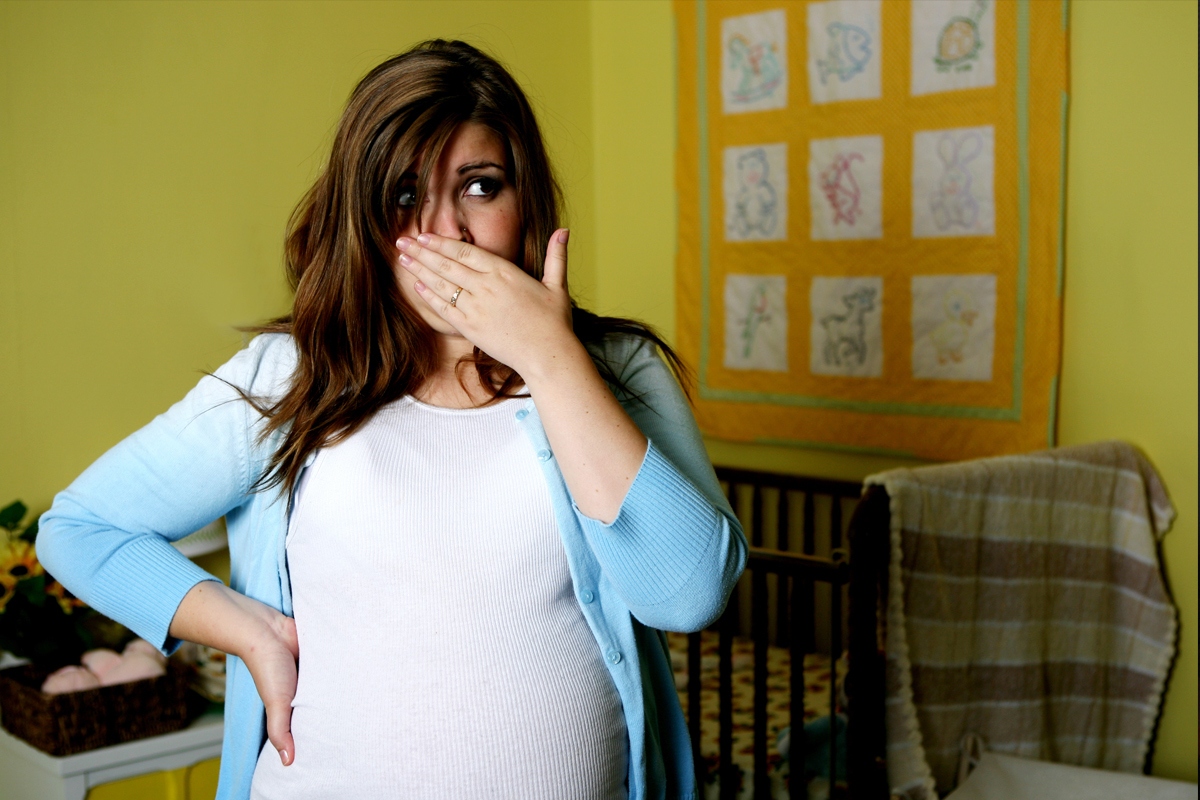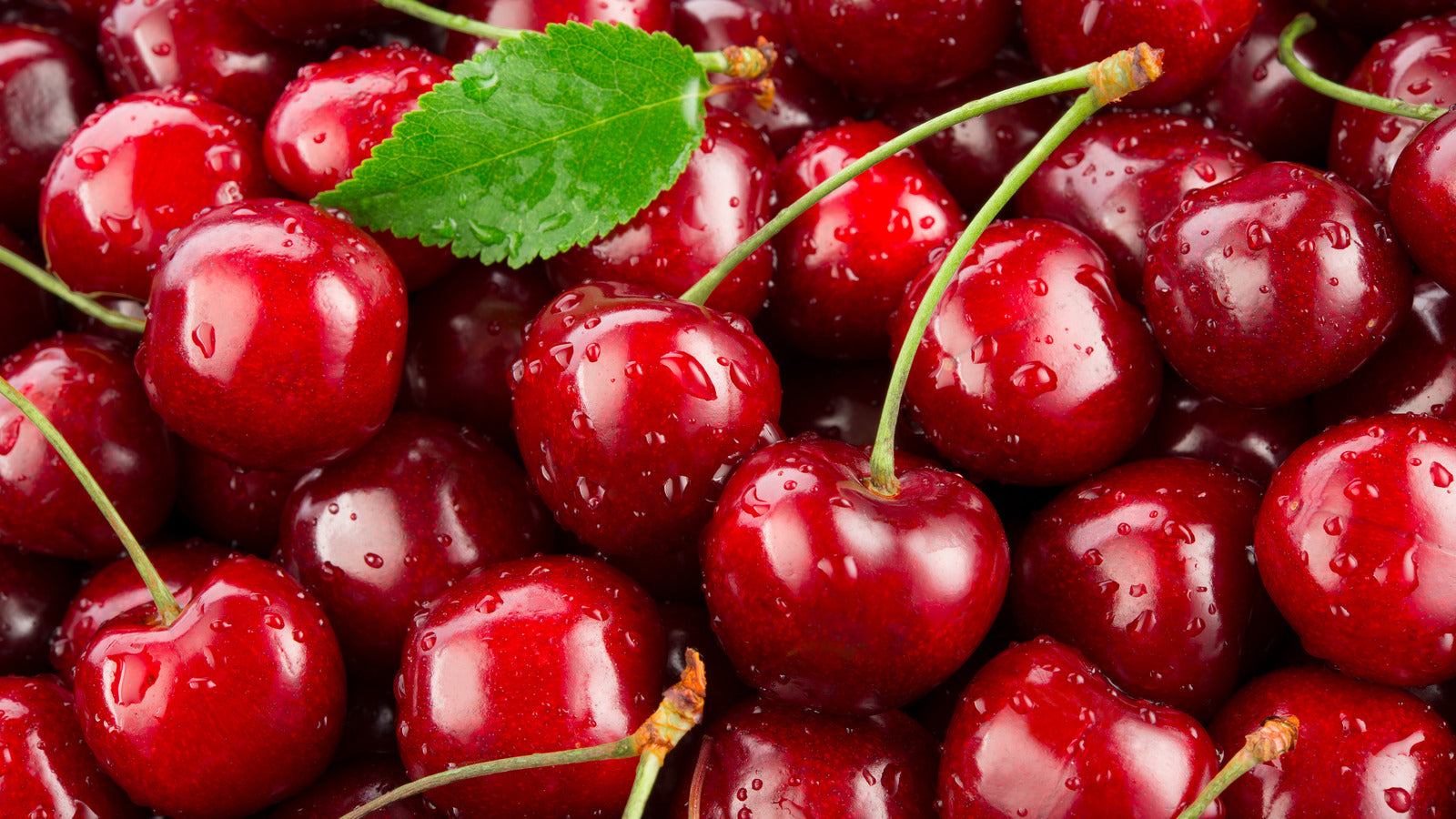

FAQs
Why Do Girls Fart
Published: July 31, 2023
Discover the answers to all your general questions about why girls fart. Learn about the biology and common misconceptions in this informative guide.
(Many of the links in this article redirect to a specific reviewed product. Your purchase of these products through affiliate links helps to generate commission for Under-tec.com, at no extra cost. Learn more)
Table of Contents
Introduction
Flatulence, commonly known as farting, is a natural bodily function that everyone experiences. While it may not be the most pleasant topic of conversation, it is a part of the human digestive process. Farting occurs when gas builds up in the intestines and is released through the rectum. It is a normal and healthy occurrence that helps to regulate our digestive system.
When it comes to the topic of farting, there is often a misconception that it is something exclusive to boys or that girls don’t fart. However, this is far from the truth. Girls, just like boys, pass gas as part of their normal bodily functions. It is important to debunk this myth and have an open and honest conversation about farting in girls.
In this article, we will explore the common causes of farting in girls, the role of diet in gas production, factors that may affect gas production in girls, the health implications of excessive farting, and tips for managing farting in girls. By understanding and addressing this natural bodily function, we can promote a more informed and inclusive conversation about farting in girls.
What is farting?
Farting, scientifically referred to as flatulence, is the process of releasing gas from the digestive system through the rectum. The gas that is expelled during farting is primarily composed of nitrogen, oxygen, carbon dioxide, hydrogen, and small amounts of other gases like methane.
When we eat or drink, the food and liquids pass through our digestive system, where they are broken down and absorbed by the body. During this process, gases are also produced as a byproduct. These gases can come from various sources, including swallowed air, the breakdown of certain foods, and the activities of intestinal bacteria.
As the gases accumulate in the intestines, they create pressure. When this pressure exceeds a certain threshold, the body naturally seeks to release the gas. This is where farting comes into play. Farting allows the excess gas to be expelled from the body, relieving discomfort and maintaining a healthy balance in the digestive system.
It is important to note that farting is a normal bodily function and should not be a cause for embarrassment or shame. Everyone experiences the need to fart, and suppressing it can lead to discomfort and potentially unwanted side effects like bloating or abdominal pain.
Farting is a natural process that helps to regulate our digestive system and keep it functioning properly. It is a necessary part of maintaining a healthy gastrointestinal tract and should be understood and accepted as a normal part of human physiology.
The misconception about girls and farting
There has long been a widespread misconception that girls do not fart or that it is improper for them to do so. This misconception is rooted in societal norms and expectations that promote a sense of shame or embarrassment around bodily functions. However, it is important to dispel this myth and acknowledge that girls, just like boys, experience the need to fart.
One reason for this misconception is the societal pressure on girls to conform to certain gender stereotypes, including the idea that girls should be dainty, delicate, and free of any bodily functions that may be deemed “gross” or unladylike. This kind of thinking perpetuates the notion that girls should not engage in activities associated with bodily functions, such as farting, as it may diminish their femininity or attractiveness.
Furthermore, the lack of open and honest conversations about farting in girls contributes to the perpetuation of this misconception. Girls may feel embarrassed or ashamed to admit that they fart, leading to a sense of isolation or self-consciousness. This can have a negative impact on their self-esteem and overall well-being.
It is crucial to break down the barriers surrounding this misconception and foster an environment where girls feel comfortable discussing their bodily functions, including farting. By promoting open dialogue, we can challenge societal norms and create a more inclusive and accepting attitude towards farting in both boys and girls.
It is important to emphasize that there is nothing inherently shameful or embarrassing about farting. It is a natural bodily function that serves a purpose in maintaining our digestive health. By dispelling the misconception about girls and farting, we can help girls feel more comfortable in their own bodies and encourage a healthier mindset towards their physical well-being.
Common causes of farting in girls
Farting, or flatulence, is a natural process that occurs in both boys and girls. It is a normal part of the digestive process and can be caused by a variety of factors. In the case of girls, some common causes of farting include:
- Swallowed Air: When girls eat or drink, they may inadvertently swallow air along with their food or beverages. This swallowed air can contribute to the amount of gas present in the digestive system, leading to increased farting.
- Dietary Factors: The foods girls consume can also play a significant role in the production of gas. Certain types of carbohydrates, such as beans, lentils, broccoli, and cabbage, contain sugars that are not easily digestible by the body. As a result, these sugars get fermented by bacteria in the intestines, producing gas as a byproduct.
- Bacterial Activity: The intestines are home to a variety of bacteria that aid in the digestion process. However, some bacteria produce gases as they break down certain types of foods, leading to farting. The balance of gut bacteria can vary from person to person, which can influence the amount of gas produced.
- Food Intolerances: Some girls may have specific food intolerances that can contribute to excessive farting. For example, lactose intolerance, which is the inability to digest lactose found in dairy products, can cause increased gas production when these foods are consumed.
- Medical Conditions: In some cases, farting may be related to underlying medical conditions. Conditions like irritable bowel syndrome (IBS) or gastrointestinal infections can cause excessive gas production and frequent farting. If farting is accompanied by other symptoms like abdominal pain, bloating, or changes in bowel movements, it is recommended to consult a healthcare professional.
It is important to remember that farting is a normal bodily function, and occasional gas is nothing to be concerned about. However, if excessive farting is causing discomfort or affecting daily life, it may be worth examining dietary habits, identifying possible food intolerances, and seeking medical advice if necessary. Understanding the common causes of farting in girls can help promote a healthier digestive system and alleviate any unnecessary stress or embarrassment associated with this natural process.
The role of diet in farting
The food we eat plays a significant role in the amount of gas produced in our digestive system, which can ultimately contribute to farting. Certain foods contain carbohydrates that are not easily digestible by the body, leading to increased gas production. Understanding the role of diet in farting can help girls manage their digestive health more effectively.
High-Fiber Foods: Fiber is an essential component of a healthy diet, but it can also contribute to increased gas production. Foods such as whole grains, fruits, vegetables, and legumes are high in fiber and can promote regular bowel movements. However, the breakdown of fiber by intestinal bacteria can produce gas as a byproduct, leading to increased farting.
Gassy Foods: Some foods are known to be “gassy” and can increase the likelihood of farting. These include beans, lentils, broccoli, cabbage, onions, and carbonated beverages. These foods contain carbohydrates that are digested by bacteria in the intestines, leading to the production of gas. While these foods can be nutritious, it may be helpful to limit their consumption if excessive farting becomes a concern.
Lactose-Containing Foods: Lactose, found in dairy products such as milk, cheese, and yogurt, can cause increased farting in individuals who are lactose intolerant. When the body lacks the enzyme lactase needed to digest lactose, it can lead to excess gas production and digestive discomfort. Managing lactose intake or opting for lactose-free alternatives may help reduce farting in girls with lactose intolerance.
Artificial Sweeteners: Artificial sweeteners found in sugar-free chewing gums, candies, and diet drinks can also lead to increased gas production. These sweeteners, such as sorbitol, mannitol, and xylitol, are not easily absorbed by the body and can ferment in the intestines, causing excess gas and farting. Moderating intake of these sweeteners may help alleviate excessive gas production.
Eating Habits: Apart from specific foods, eating habits can also impact gas production. Eating too quickly can cause individuals to swallow excess air, leading to increased farting. Chewing gum, drinking carbonated beverages, and smoking can also introduce more air into the digestive system, resulting in excessive gas and farting.
While it is important to note that everyone’s digestive system is unique and may react differently to specific foods, being mindful of one’s diet can play a significant role in managing farting. Keeping a food diary and identifying patterns between the consumption of certain foods and farting episodes can be helpful in identifying potential triggers. Making small adjustments in dietary choices and eating habits can contribute to better digestive health and reduced farting in girls.
Factors that may affect gas production in girls
Gas production in the digestive system is influenced by various factors, and understanding these can help shed light on why some individuals may experience more farting than others. In the case of girls, several factors can affect gas production and contribute to farting.
Dietary Factors: As mentioned in the previous section, the types of foods consumed can have a significant impact on gas production. Certain foods high in carbohydrates, fiber, or artificial sweeteners can lead to increased gas production and farting. Additionally, individual food intolerances or sensitivities to specific ingredients can contribute to excessive farting in girls.
Gastrointestinal Tract Health: The health of the gastrointestinal tract plays a crucial role in gas production. Conditions like irritable bowel syndrome (IBS), inflammatory bowel disease (IBD), or gastrointestinal infections can disrupt the normal functioning of the digestive system, leading to an imbalance in the gut bacteria and increased gas production. Girls with pre-existing gastrointestinal conditions may experience more farting as a result.
Stress and Anxiety: Emotional factors, such as stress and anxiety, can also impact gas production. The gut-brain connection is a well-documented phenomenon, and stress can affect the normal functioning of the digestive system. When girls are under stress, the digestive process may be altered, leading to increased gas production and farting. Finding healthy ways to manage stress, such as through relaxation techniques or therapy, may help reduce excessive gas production.
Physical Activity: Regular physical activity can contribute to a healthier digestive system. Exercise helps stimulate bowel movements and promotes better digestion. On the other hand, a sedentary lifestyle or lack of physical activity can slow down digestion, leading to increased gas production. Encouraging girls to engage in regular exercise can help maintain a healthy balance in the digestive system and reduce farting.
Hormonal Changes: Hormonal fluctuations during menstrual cycles can also affect gas production in girls. Some girls may notice an increase in farting before or during their periods due to hormonal changes. While this is a normal occurrence, maintaining a balanced diet and managing stress levels can help alleviate symptoms.
While these factors can contribute to increased farting in girls, it is important to remember that the frequency and intensity of farting can vary from person to person. Paying attention to individual reactions and seeking medical advice if farting is accompanied by severe discomfort or other concerning symptoms can provide a more personalized approach to managing excessive gas production.
Health implications of excessive farting in girls
Farting is a natural bodily function and is generally harmless. However, excessive farting can sometimes be a sign of underlying health issues or dietary imbalances. While occasional farting is not a cause for concern, it is essential to be aware of the potential health implications that excessive farting in girls may have.
Discomfort and Bloating: Excessive farting can cause discomfort and bloating in girls. The build-up of gas in the digestive system can lead to feelings of fullness, tightness, and general discomfort in the abdomen. This can affect their overall well-being and quality of life.
Food Intolerances or Sensitivities: Excessive farting may be an indication of underlying food intolerances or sensitivities in girls. Certain foods, such as those containing lactose or high amounts of fiber, may not be well-tolerated by their bodies, leading to increased gas production. Identifying and managing these intolerances can provide relief from excessive farting.
Gastrointestinal Disorders: Persistent and excessive farting can sometimes be a symptom of gastrointestinal disorders. Conditions like irritable bowel syndrome (IBS), inflammatory bowel disease (IBD), or gastrointestinal infections can disrupt the normal functioning of the digestive system, leading to increased gas production. Seeking medical advice is crucial for an accurate diagnosis and appropriate management.
Malabsorption Issues: Excessive farting can also be a result of malabsorption issues in girls. In conditions like celiac disease or pancreatic insufficiency, the body may have difficulty digesting and absorbing certain nutrients. This can lead to increased gas production as a byproduct of undigested or poorly absorbed substances. Proper medical evaluation and management are necessary for addressing malabsorption issues.
Psychological Impact: Excessive farting can sometimes lead to psychological distress and embarrassment in girls. Concerns about social acceptance and the fear of being judged may impact their self-esteem and social interactions. It is essential to provide a supportive and understanding environment for girls, promoting open discussions about bodily functions to alleviate any unnecessary psychological burden.
While excessive farting in girls can have potential health implications, it is important to approach the situation with compassion and understanding. If excessive farting is causing discomfort or interference with daily life, it is advisable to consult a healthcare professional. They can provide a comprehensive evaluation, identify any underlying causes or conditions, and recommend appropriate treatments or dietary modifications to alleviate excessive farting and improve overall digestive health.
Tips for managing farting in girls
Farting is a natural bodily function and is nothing to be embarrassed about. However, if excessive farting is causing discomfort or affecting daily life, there are several tips and strategies that can help manage and reduce farting in girls:
- Be Mindful of Diet: Have a balanced diet and pay attention to the types of food that may contribute to excessive gas production. Avoid or limit foods known to cause gas, such as beans, broccoli, cabbage, carbonated beverages, and artificial sweeteners.
- Eat Slowly and Chew Thoroughly: Eating too quickly can lead to swallowing excess air, which can contribute to gas production. Take your time when eating and chew food thoroughly to aid digestion and minimize the intake of air.
- Manage Food Intolerances: If you suspect that certain foods may be causing excessive farting due to underlying intolerances or sensitivities, consider eliminating or reducing those foods from your diet. Consult with a healthcare professional or registered dietitian for guidance.
- Stay Hydrated: Drinking an adequate amount of water helps promote healthy digestion. It can help soften stools and prevent constipation, which can contribute to increased gas production. Aim to drink enough water throughout the day.
- Regular Physical Activity: Engaging in regular exercise can help stimulate bowel movements and promote a healthier digestive system. Find activities you enjoy and incorporate them into your routine to support optimal digestion.
- Manage Stress: Stress can disrupt the normal functioning of the digestive system, leading to increased gas production. Practice stress-management techniques, such as deep breathing exercises, meditation, or engaging in hobbies, to help reduce stress levels and promote better digestion.
- Avoid Chewing Gum and Carbonated Drinks: Chewing gum and consuming carbonated beverages can introduce extra air into the digestive system, resulting in increased gas production. Limit or avoid these habits if excessive farting is a concern.
- Maintain Regular Bowel Movements: Pay attention to your bowel movements and aim for regularity. If constipation is an issue, consider increasing fiber intake gradually and adding more fruits, vegetables, and whole grains to your diet. Consult a healthcare professional or registered dietitian for personalized recommendations.
- Seek Medical Advice if Necessary: If excessive farting is accompanied by persistent symptoms like abdominal pain, changes in bowel movements, or other concerning signs, it is important to seek medical advice. A healthcare professional can provide a thorough evaluation and guide you towards appropriate management strategies based on your specific needs.
Remember, managing farting is about finding a balance that works for your body. Every individual is different, and what works for some may not work for others. It may be helpful to keep a food diary to track your diet and identify any patterns between specific foods and farting episodes. By implementing these tips and making necessary adjustments, you can promote a healthier digestive system and reduce excessive farting in girls.
Conclusion
Farting is a natural and normal bodily function that everyone, including girls, experiences. It serves an essential role in maintaining a healthy digestive system. Unfortunately, there has been a long-standing misconception that girls do not fart or that it is improper for them to do so. This misconception, along with societal pressures and lack of open discussions, can lead to embarrassment, shame, and a limited understanding of the topic.
By debunking the myth and having open conversations about farting in girls, we can promote a more inclusive and informed perspective. We have explored the common causes of farting in girls, including factors such as diet, bacterial activity, and digestive health. We have also discussed the potential health implications of excessive farting and provided tips for managing farting in girls.
It is important to remember that each individual is unique, and what may work for one person may not work for another. It is essential to listen to your body, be mindful of your diet, and seek medical advice if necessary. Creating a supportive and understanding environment where girls feel comfortable discussing their bodily functions is crucial for their overall well-being.
Let’s embrace the natural process of farting and promote a healthier mindset towards our bodies. By normalizing the conversation around farting in girls, we can break down barriers, reduce stigma and embarrassment, and foster a more inclusive understanding of our bodily functions.










